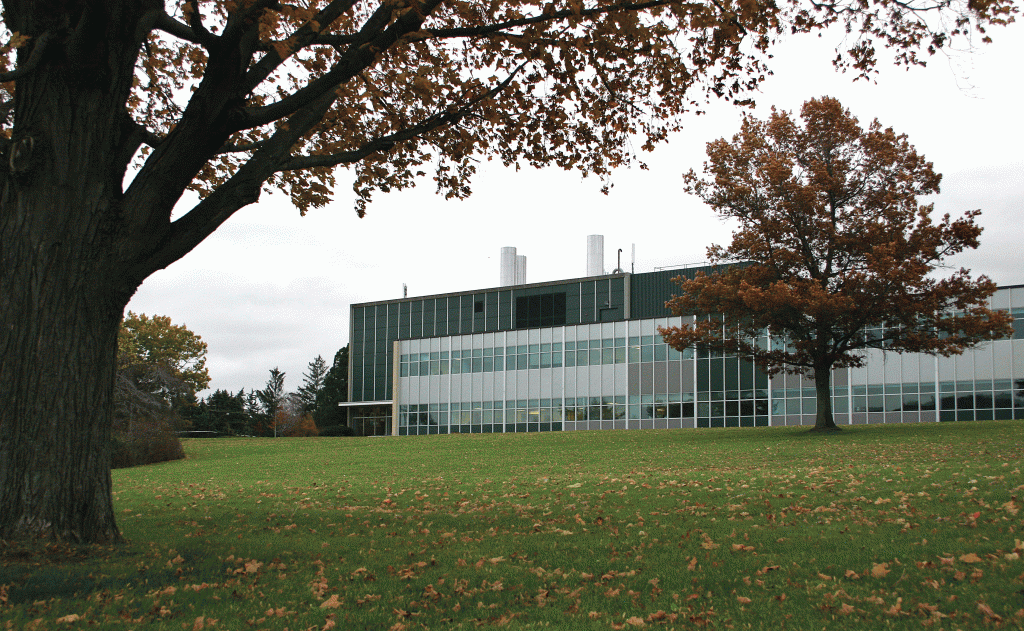
The Engineering and Science Building in the Innovative Science Complex now has a LEED Platinum certification, the highest possible ranking given by the U.S. Green Building Council’s (USBGC) Leadership in Energy and Environmental Design green building certification program.
According to the Binghamton University website, the $66 million, 125,000-square-foot building is the latest addition to Binghamton University’s Innovative Technologies Complex and is home to the department of mechanical engineering, department of electrical and computer engineering, the dean’s office, as well as research centers, flexible student and laboratory spaces and suites for business start-ups and offices.
The building was specially designed by architect William H. Hall and members of his physical facilities design team to incorporate passive solar energy, wherein the windows, walls and floors are able to collect solar energy and then redistribute it in an efficient manner, and geothermal technology for heating and cooling, as well as the latest technology for heat recovery and humidity control.
Karen Fennie, communications specialist for the physical facilities department, said she believes the ranking is important in showing Binghamton’s continued commitment to energy efficiency and the environment.
“It is not an easy ranking to achieve,” Fennie wrote in an e-mail. “ … It demonstrates the University’s serious commitment to sustainability and enhances the reputation we already have for green practices whether it be in building design, our recycling/composting programs the energy management system which helps us run equipment efficiently.”
Jonathan Donovan, a junior majoring in electrical engineering, said he was impressed with the building and its efficiency rating.
“My friends and I usually go there for their academic advising, and it is always an impressive sight,” Donovan said. “I know the building was built pretty recently, and it is great that to hear that it is being awarded for its energy efficiency since it shows that Binghamton University is constantly trying to be the best and focus on quality over quantity. “
From the outset, there are photovoltaic panels, which convert solar radiation into direct current electricity that can be then redistributed for more efficient use, covering the outside wall of the building and inside, the interior halls are decorated by energy-efficient skylights that allow for the maximum use of incoming sun rays as well.
Fennie said all new construction and major renovations at BU will be designed to LEED standards, citing the East Campus Housing Project as an example of the University’s commitment to LEED certification standards.
“Bingham Hall in Newing College and the Chenango Champlain Collegiate Center have attained LEED Silver, and Broome and Delaware halls in Newing College have been certified LEED Gold,” Fennie said. “The University Downtown Center is LEED silver and Windham and Cascade Halls are LEED certified. The energy management system, which allows us to remotely control building systems, will continue to be expanded and refined so building operations can be managed as efficiently as possible. ”
Rafi Schulman, a sophomore double majoring in neuroscience and evolutionary studies, said the building was a good idea.
“The building looks like something a little out of the ordinary, but in a good and unique way,” Schulman said. “I’m really glad to see Binghamton going out on a limb and taking a chance by doing something that is non-conventional yet energy efficient and helpful for the environment.”
Unveiled in a ceremony Tuesday, Sept. 24, the building was awarded a platinum plaque in recognition of the new status.


